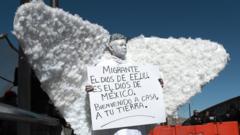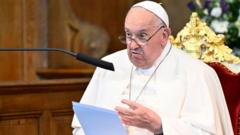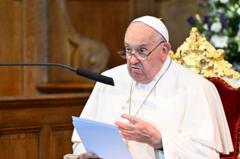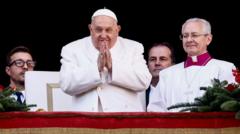The Peruvian priest, who revolutionized Church teachings through his influential work, "Theology of Liberation," faced significant opposition but ultimately left a lasting legacy of compassion and advocacy for the marginalized.
Gustavo Gutiérrez: A Legacy of Liberation Theology and Advocating for the Poor
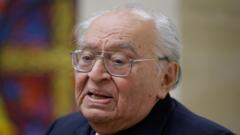
Gustavo Gutiérrez: A Legacy of Liberation Theology and Advocating for the Poor
Father Gustavo Gutiérrez, the founder of liberation theology, has passed away at the age of 96, leaving a profound impact on the Roman Catholic Church and its commitment to social justice.
Gustavo Gutiérrez, a prominent priest known for founding liberation theology, died in his home city of Lima at the age of 96. Gutiérrez's 1971 book, "Theology of Liberation," advocated for the Roman Catholic Church to actively confront poverty and injustice. His ideas were embraced by many in Latin America, yet they faced severe criticism, especially from conservative elements within the Church, including Cardinal Joseph Ratzinger, who later became Pope Benedict. Ratzinger labeled liberation theology's concepts as dangerously Marxist and a threat to the Church's faith.
Despite the earlier tensions, relations improved when Jorge Mario Bergoglio became Pope Francis, who commended Gutiérrez's lifelong dedication to the poor. Gutiérrez recalled his time studying diverse subjects in Peru and Europe, including his exposure to Marxist philosophy, which drew ire from many critics who wrongly categorized his advocacy as communism.
His teachings sparked controversy, particularly when some priests engaged in revolutionary acts, such as supporting the Sandinista movement in Nicaragua. Gutiérrez argued that his teachings were biblically rooted and aimed at revitalizing the Church's connection with impoverished communities. He contended that the Church often failed to address the true concerns of its less fortunate followers, urging clergy to learn from their resilience and hope.
Through his work, Gutiérrez aimed to redefine the narrative surrounding suffering, championing the belief that "no one is born to suffer, but to be happy." His parishioners characterized him as a humble figure with a remarkable ability to connect, engaging with communities through relatable topics like chess, traditional music, and sports.
Peruvian sociologist Félix Grández noted Gutiérrez’s rare gift of communicating complex theological concepts in accessible manners, leaving an indelible mark on those he encountered. His passing evokes immense gratitude from those who benefited from his teachings and witness his love for the marginalized within society.





